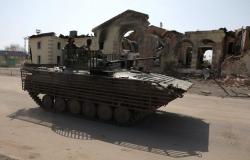Anticancer cell therapy is a form of oncological disease treatment in which the insufficient immune response against cancer is modified.
In what way? It can be said that the patient’s immune cells are given “military training” in the laboratory. They are then injected back into the body and are able to fight cancer more effectively.
“Human blood is taken and cells – monocytes – are isolated from it. In the laboratory, we change their function to dendritic cells, which are the engine of the entire immune response. Without them, there is no immune response at all,” lrytas.lt explained the head of the Immunology Laboratory of the National Cancer Institute (NVI), prof. Dr. Vita Pašukoniene.
The professor emphasized that dendritic cells are a “technology as old as the earth” and there are no doubts about its safety.
The conference “Advanced therapy in Lithuania: present, perspectives, problematic aspects” reviewed the discoveries and application of particularly modern treatment methods in our country.
“Personalized medicine represents a paradigm shift. Now, when a person comes to the polyclinic, the doctor treats the disease, not you individually. Personalized medicine works differently – diagnostic methods are aimed at finding out how your body functions specifically. According to what works, the treatment is adjusted”, said the chairman of the Lithuanian Science Council (LMT), dr. Gintaras Valinčius.
Cancer is destroyed by the body itself
V. Pašukonienė, who presented the cellular therapy method, emphasized that the target of treatment must not only be a cancerous tumor.
“There is no single golden bullet that can cure cancer. Measures are needed not only against cancer cells, but also against the cancer microenvironment. There is no way that one method is enough for treatment”, emphasizes V. Pašukonienė.
According to her, the essence of cellular therapy is that medical actions are directed to the weak point of the immune response and the gap is closed. Ultimately, the cancer can be destroyed by a person’s own cells.
“The immune response to cancer is a very complex system, and there are almost no patients with the same problem. Let’s name the problem like this – the immunity wheel is stuck.
The problem is that such a failure can occur in different parts of the immune system, the molecular mechanisms are very complex. This is a new science, so despite the accumulated knowledge, many things are still shrouded in fog.
If we hit where the failure is, we can restore the function of the immune circuit. Our ultimate goal is for the immune system to destroy the cancer,” said V. Pašukonienė.
It is true, she added, that there are more known weak points of immunity than there are tools for launching the body’s defensive response.
Is this treatment suitable for all types of cancer? “There are no universal things,” asserts V. Pašukonienė.
Cell therapy is more suitable for killing cancers that are more susceptible to the effects of the immune system. These include melanoma, kidney, and in some cases breast and ovarian cancers. However, effectiveness depends on the specific case.
“The essence is to determine the immune relationship between cancer and what it has created around itself,” commented V. Pašukonienė on the application possibilities of cell therapy.
The bridge between science and medicine is missing
A cell therapy clinical trial is underway at NVI: 23 patients diagnosed with stage I and II cancer are treated with a dendritic cell vaccine, and another 23 patients receive standard chemotherapy treatment. A comparison will be made at the end of the study.
“We, researchers, take a lot of material and we will be able to present biomedical results”, V. Pašukonienė singled out the benefits of the research.
The professor also talked about the obstacles to applying scientific research achievements in clinical medical practice.
According to her, there is a lack of tools that would allow the transfer of scientific achievements to everyday medicine – promising ideas die when their development reaches the stage of clinical trials.
“We develop the idea to a prototype. Next, it’s up to the clinicians to come in and say “give it to us.” Now we have to find those who can solve legal and financial issues by ourselves,” complained V. Pašukonienė.
She used the metaphor of a “bridge” to describe the situation. The professor noticed that there was a missing link that would connect scientists developing new therapeutic methods and doctors looking for more effective treatments.
Tags: discovered effectively destroys cancer cells
-





